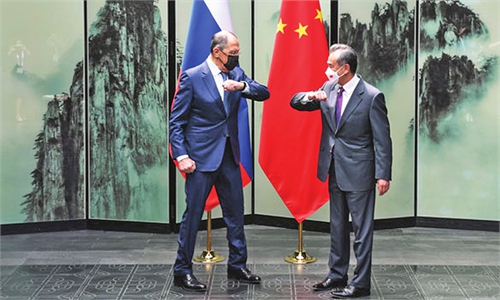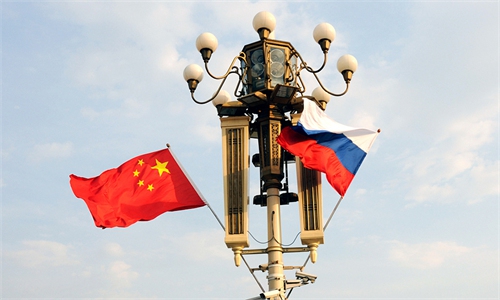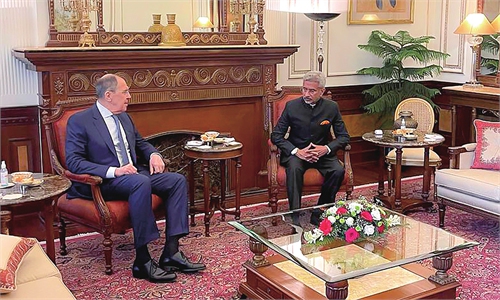IN-DEPTH / IN-DEPTH
Most Russians optimistic about future, more united against external sanctions: experts
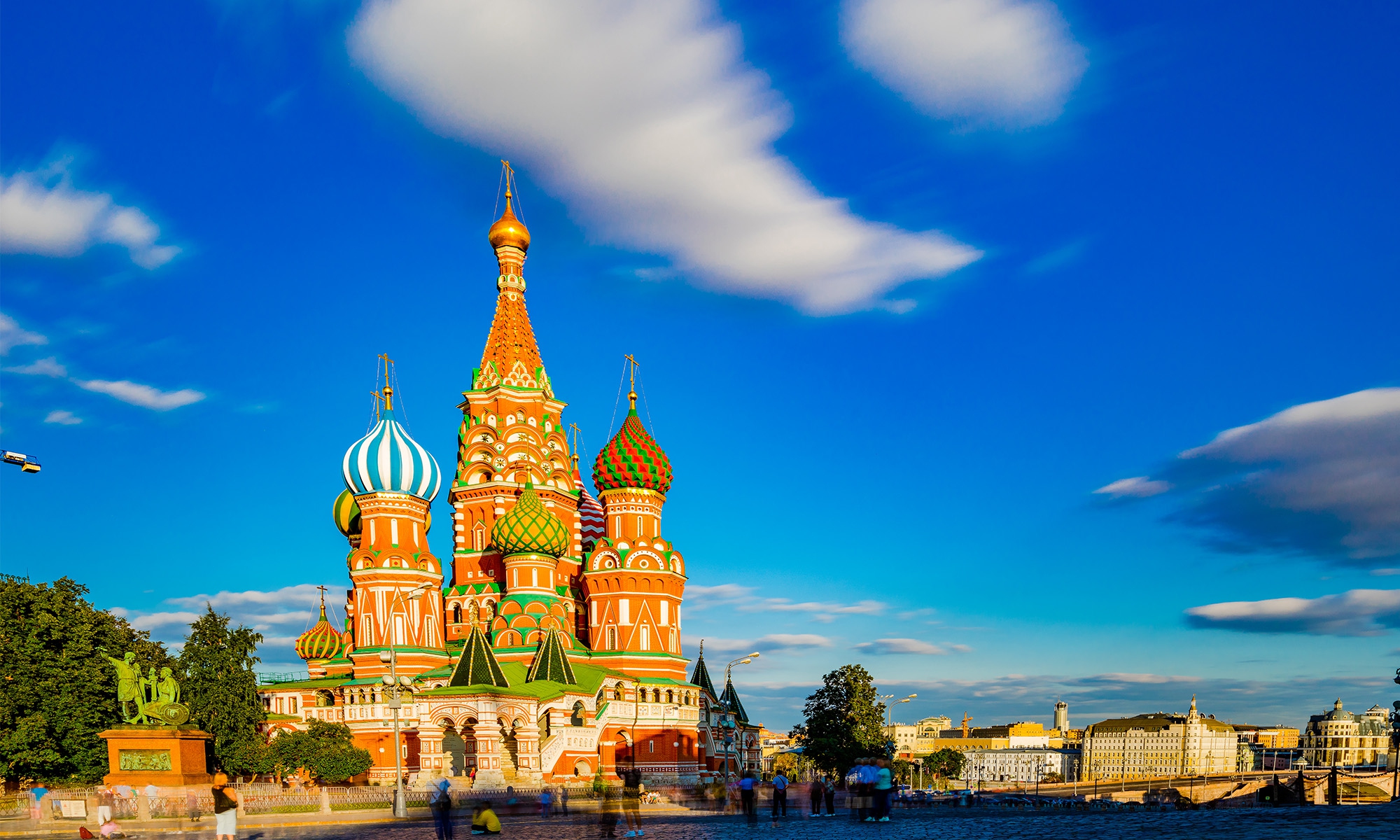
Moscow Photo: VCG
At a time when Western countries are imposing the toughest sanctions on Russia, opinion polls suggest that the number of Russians who are optimistic about the future has incredibly increased, which, local experts noted, shows that the character of the Russian people is to be more united while their country is pressured.
The latest polls show that nearly 50 percent of Russians are confident in the country's future. At the same time, the proportion of Russians in support of the special military operation in Ukraine has risen sharply, according to a recent Sputnik News report.
From interviews with everyday Russian people, the Global Times found that they hold different expectations for the future under Western sanctions. But most of them surveyed say they have full confidence in the unity of the country.
Western sanctions will push for more independence of Russia from Western influence and will beef up its self-reliance in economic and political fields, Oleg Ivanov, deputy head of the International and National Security Department, Diplomatic Academy in Moscow, told the Global Times.
"Now Russia has to develop more of its own high tech industries that will bring more benefit to the country and help raise living standards," he said.
Optimism shown in polls
According to the Sputnik report on March 30, about half of all surveyed Russians believe that their livelihood will be better in three to five years. A total of 49 percent of respondents believe that life will become "better than now" in the future, as compared with a mere 25 percent of respondents in December 2021.
Meanwhile, 19 percent of people believe that "life will not change"; 13 percent believe that it "will probably get worse," and 18 percent said it was "hard to answer."
After the conflict in Ukraine erupted, the US and its allies imposed a series of tough sanctions on Russia in almost all fields, but the confidence for the future among Russians seems to baffle the outside world.
"So far, the sanctions have not affected my life at all. I will find replacements of those products inside Russia," Stas, 27 years old, told the Global Times. "I do not fear and believe it will get better."
"The sanctions have directly affected my life because my salary is dependent on the state budget, which is now in trouble due to the sanctions. But all those problems can be solved," Vasily, a 29-year-old civil servant, told the Global Times. "I will strongly feel the departure of some Western companies from Russia as I grew up in Moscow. However, I'm not paying attention to whether they will return to our country."
"I am not afraid of further sanctions, because the strongest sanctions have already been applied to Russia, causing significant damage to all the pillar industries and businesses on which we depend. But the fact is that they have managed to survive," Vasily said.
"Western sanctions against us are designed to destroy our country. But we believe that under the leadership of President Putin, we will overcome current difficulties and get rid of the pressure from the West, and the future of the country will be better. Russia is a great nation that will not succumb to external pressure," said a Russian netizen.
Russians increasingly united
But where does Russians' optimism come from during such difficult times?
Some experts noted that most Russians believe that after Russia launched a special military operation against Ukraine, Russia's national security was further guaranteed.
According to a survey on March 5, up to 71 percent of Russians support "special military operations" in Ukraine.
Meanwhile, people trust President Putin more. A majority of Russians (79 percent) approve of Putin's work, and almost the same number (81 percent) expressed trust in him, Sputnik News reported on April 1.
Moreover, Russia has a vast territory and rich resources. There is no problem in ensuring the most basic needs of the people are met, though their quality of life might be affected.
Finally, Russians are a very stress-resistant people, and the greater the pressure, the stronger their resilience would be, experts noted.
Under the sanctions, Russia's national character has been best reflected in a critical moment in history. They were able to unite with national leaders at a critical moment, said a Russian socialist.
"In my opinion, Russia has a strong historical memory associated with participation in wars. Patriotic education and propaganda over the last decade, associated with honoring the victory of the people in the Great Patriotic War of 1941-1945, strengthened this important component of the historical memory of the Russian people," Sergey Biryukov, a professor at the Siberian Institute of Management in Novosibirsk of Russia said.
Russians, for the most part, really understand that an adequate response to an external threat and military pressure is the "use of force", which requires the concentration of efforts of the whole society, he noted.
His opinion was echoed by Ivanov, who said, "We are the nation that is ready to fight both directly and indirectly for our independence and sovereignty. I think it is normal for any country to want to shape its own destiny without outside interference. Freedom does not come cheap."
Vasily, the civil servant said that "the world we were in from 1991 to February 2022 no longer exists, and it will change rapidly. The post-Soviet model has been eliminated."
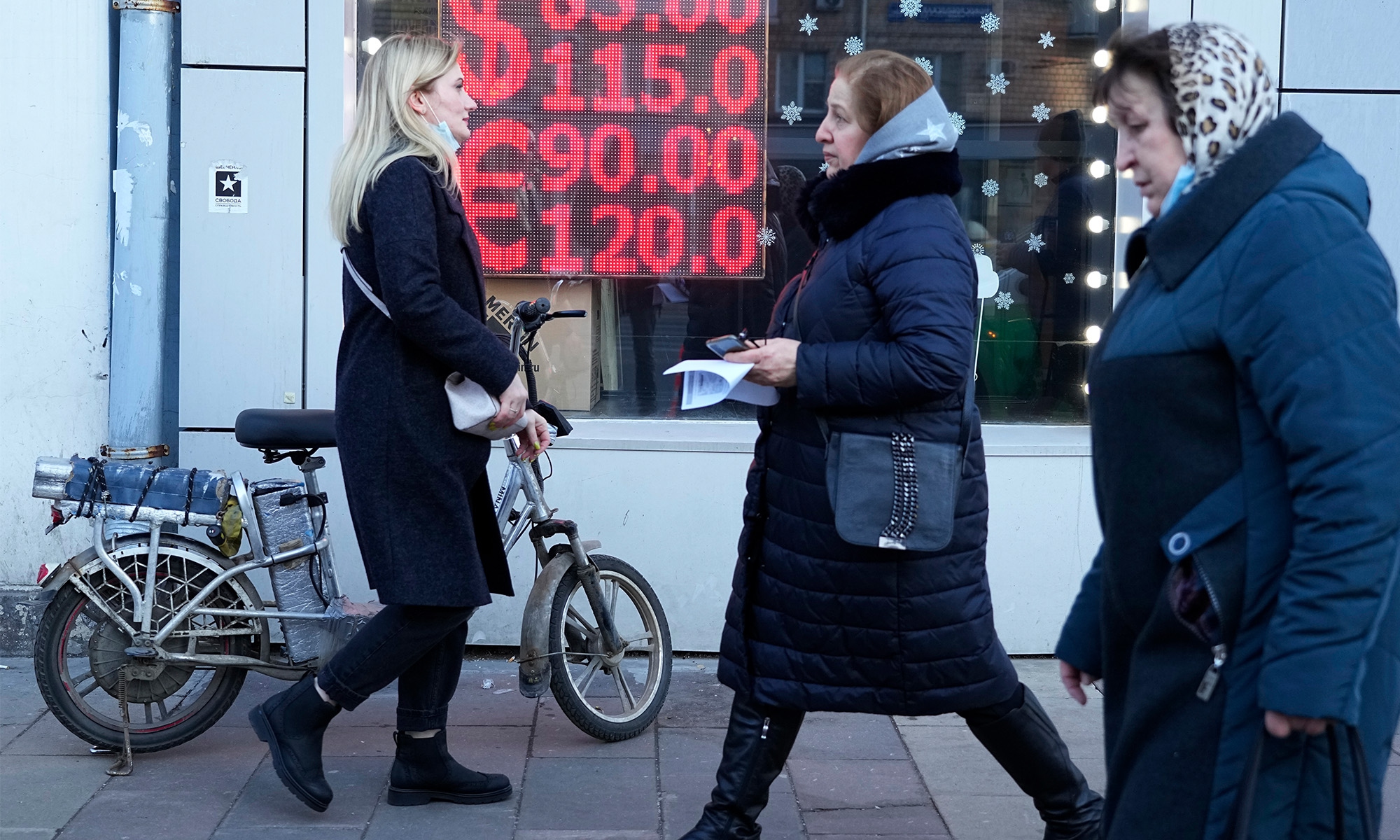
People walk past a currency exchange office screen displaying the exchange rates of US Dollar and Euro to Russian Rubles in Moscow, on Febuary 28, 2022. Photo: VCG
Mixed anticipations
While interviewing Russian citizens, the Global Times found that toward the future, people hold different attitudes, with confidence and concern both co-existing.
The image of the future is blurred in the minds of Russians, while older and middle-aged people are more seriously taking into account their experiences, while the younger generation have not yet fully realized the profound changes that will affect their life, according to Biryukov.
In a trending video clip on the Russian internet, it is sung that "McDonald's is closed, which is good. I don't have to go there anymore, I can eat normally now, and it's more affordable. You pass by McDonald's, [and see] oh, it's closed, that's fine. I just go to the grocery to get some yogurt and bread instead."
Ruslan, 26, told the Global Times that "sanctions cannot affect us. We will get through this. We will be better. Russians are likely to take over the commercial space market which was previously occupied by Western companies."
Different from such outpouring of optimism, a Moscow citizen expressed his concerns.
"Because of the sanctions on Russia, prices have risen, the ruble has depreciated, and people's personal wealth has shrunk. Unemployment and inflation have remained high. Life could be more difficult," he told the Global Times.His salary has shrunk from $2,000 to $950 due to the devaluation of the ruble.
Like many cases in Moscow, Ruslan is the only source of income in his family. He worried that the sanctions will continue for many years.
Currently, life in Russia under the tough sanctions is indeed difficult. Recently, although food prices have remained basically stable under the strong control of the government, there were shortages of products including office stationery and medicines.
For example, a pack of Svetocopy brand standard A4 printing paper has risen from 179 rubles ($2.09) to 2,999 rubles. The prices of some brands of paper have even increased 20-fold.
It is hard to imagine that a country with one-fifth of the world's forest cover is short of paper. The reason for the shortage is that foreign countries have stopped exporting whitening agents to Russia.
In addition, the Russian people are worried that Western sanctions have led to drug shortages and price increases, and some drug prices have been ratcheted up.
Therefore, it is not difficult to understand that some people have concerns about the future because of continuous shortage and price increases of daily necessities that are directly related to ordinary people.
"The Russian economy has the potential to withstand maximum pressure without being completely torn apart, but its resilience has its limits and of course the consequences of the sanctions already imposed by the US and EU will hurt the Russian economy greatly but cannot entirely destroy it," Danil Bochkov, an expert at the Russian International Affairs Council, told the Global Times.
"Russia has other alternatives in Asia to divert some of the exports traditionally sent to the EU, but it will take time and huge financial resources. So, in the meantime the quality of life in Russia as well as people's well-being will most likely to feel the impact of the Western sanctions," he said.
"Of course Russia has been going through hard times, because of the sanctions. However, for the past 8 years, Russia has been adapting to a great extent to them so they will bring more hardship but will not ruin the country," Ivanov said.
"What's more, Russia is not alone in the world. It has reliable and powerful partners such as China, and other countries are ready to lend a hand to help withstand this enormous pressure from the West," he noted.
